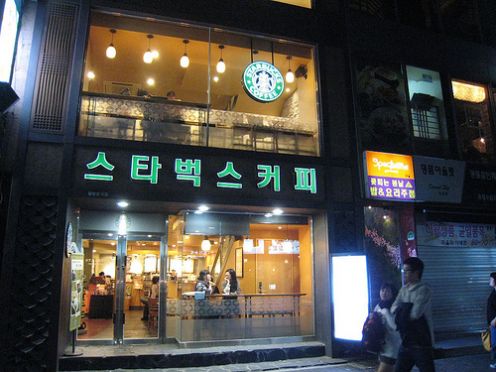As South Korea edges closer to confirming a possible new nation-wide outbreak of the coronavirus, scientists have identified an important lesson for the production side of our industry from one particular case.
A woman with the coronavirus visited a Starbucks cafe north of Seoul this month and days later more than two dozen patrons tested positive. The focus of attention was the internal air conditioning system.
But the four Starbucks employees who were all subject to the same ventilation escaped infection because they were wearing face masks.
The specific outbreak, on August 8 in the South Korean city of Paju, saw 27 people infected and has been linked to the air conditioning used inside the coffee outlet.
As Bloomberg reports, ‘[t]his speaks volumes about the role masks can play,’ said Ma Sang Hyuk, a paediatric infectious diseases physician at Changwon Fatima Hospital in South Korea. ‘Masks may not provide 100% protection, but there’s nothing out there that’s as effective.’
Guidance on face masks is being issued from Australia to Venezuela to help stem the pandemic, which has infected more than 23 million people and killed at least 810,000 worldwide, according to Bloomberg. Face coverings will become mandatory in New Zealand for residents using public transport and inside ride-sharing vehicles, Prime Minister Jacinda Ardern said earlier this week. Last week, the World Health Organization issued advice on their use for children.
The lessons for our own official VIP Hospitality industry is this: officials assume that most patrons were not consistently wearing masks inside the Starbucks as they were drinking and eating, according to Gang Young-do, a spokesperson for the Paju government.
A ceiling-mounted air-conditioning was helping to cool the second-floor outlet, he said.

‘The virus may spread where people can’t wear masks while eating or drinking tea, as witnessed at the Starbucks in Paju,’ Jung Eun-kyeong, head of the Korea Centers for Disease Control & Prevention, told reporters in Seoul on Sunday.
The Starbucks case is one of ‘the most important opportunities to study risk factors among a more or less controlled cohort of people,’ said Arnold Bosman, director at Transmissible BV, a Netherlands-based developer of training materials for outbreak control. ‘This Starbucks event will be a very valuable training exercise for future generations of epidemiologists.’
The Starbucks infections later led to about three dozen more cases outside the coffee shop as of yesterday, August 24.


